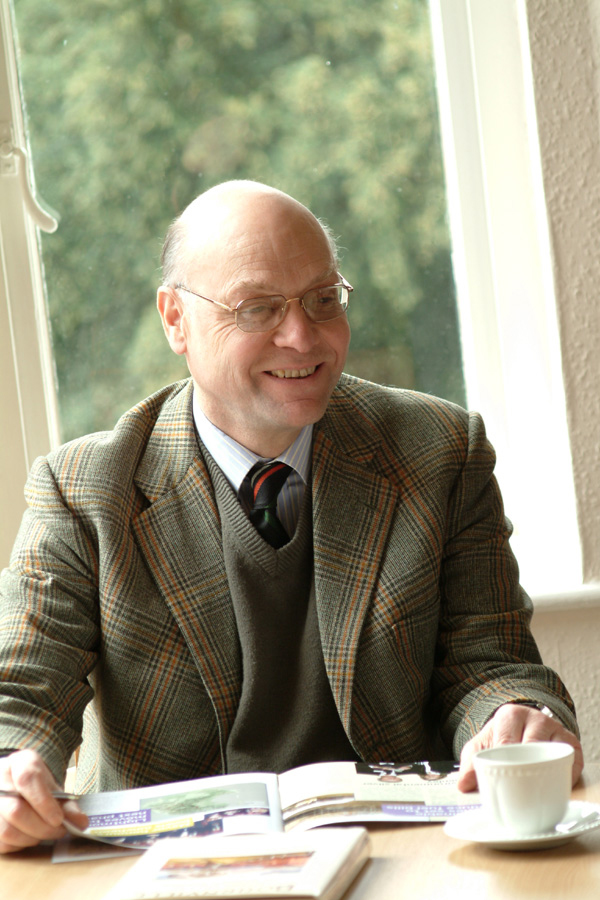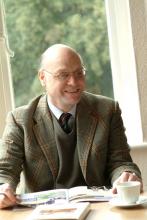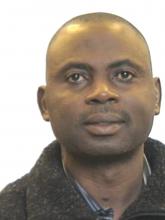Professor Martin Snaith, O.B.E., introduces an annual gathering that has grown over the years to become perhaps the world's foremost professional development forum promoting advances in sustainable roads worldwide. Over more than 15 years the Senior Road Executives Programme (SRE), organised by the internationally renowned Highways Group of the University of Birmingham, UK, in association with IRF, has established a worldwide reputation for providing top-quality professional development for executives worki

Professor Martin Snaith (Copyright BVT)
Professor Martin Snaith, O.B.E., introduces an annual gathering that has grown over the years to become perhaps the world's foremost professional development forum promoting advances in sustainable roads worldwide
Over more than 15 years theWe met with Professor Martin Snaith, O.B.E., Emeritus Professor of Highway Engineering at the University, to find out more about the course, its history and just what makes it such an essential, "must attend" annual event for senior road practitioners, as well as members of road boards, government officials, specialised consultants and staff from leading international donor organisations.
We began by asking Professor Snaith to introduce briefly the dates and content for the 2011 edition of the SRE.
"The next SRE will be held in Birmingham from 4-16 April, 2011. As has become customary, the programme is designed to advance global understanding of the most pressing issues facing the road sector by providing a unique, interdisciplinary forum for debate and discussion with leading experts and fellow executives drawn from all over the world. To facilitate this, the programme is broken down into four intensive, three-day residential modules. Whilst these modules are thematically interlinked, participants not wishing, or able, to attend them all can, of course, select individual components, in accordance with the following schedule: Road Sector Reforms (4-6 April, 2011); Road Financing (7-9th April); Road Safety (11-13 April); Road Maintenance Management (14-16 April).
The programme is recognised by The
How did you come to be involved in the Senior Road Executives Programme?
"Since its inception some 30 years ago, the Highways Group at Birmingham has tried to drive forward learning and research in the highways sector, specifically for developing countries. We rapidly developed our Masters programme, originally funded by the British government, and then turned our attention to research and continuing professional development (CPD). As Group Director, I was keen to extend our CPD activities and was particularly delighted, therefore, when Dr. Henry Kerali (now a Professor) worked with Dr. Ian Heggie, then of the World Bank, to create what ultimately became the highly successful SRE Programme. By being aimed specifically at senior people associated with the road sector from around the world this filled an important void. The formula they constructed - with prime lecturers being drawn from practising engineers, economists and administrators, who are acknowledged authorities in their respective fields - has proved to be a winning one, with satisfied delegates coming year on year from a wide variety of countries throughout the world. My involvement, therefore, has been initially to support Henry and Ian through all the necessary steps to enable the undoubted success of their brainchild and, later, to ensure its continuation and gradual metamorphosis into its present format - still in Birmingham, and still very much focused on its original aims."What is your own background and how are you currently involved in the SRE?
"I started off life in soil mechanics, but rapidly converted my education and training to the problems I had seen in the management and operation of roads in developing countries - for which I felt there was a paucity of focused research and teaching. Indeed, at the time, arguably only the Overseas Unit of the Transport Research Laboratory (What do you think has contributed to the success of the Senior Road Executives Programme?
"I would say enthusiasm, commitment and the ability to respond to change. The initial enthusiasm of the course founders, Henry Kerali and Ian Heggie, benefitted from the support (besides myself) of key personalities like Dr. Clell Harral from the World Bank as well as, of course, my colleagues within the University; and, indeed, its industry-based collaborators in the UK, such as Scott Wilson andDfID, for example, demonstrated its active endorsement on one occasion through the visit of then Secretary of State, Clare Short. Finally, I would cite the ability of the SRE to evolve dynamically in response to the demands of industry and the environment.
It has always very seriously taken on board comments from delegates, the industry and supporting agencies, and has over the years been prepared to adjust its courses, and the syllabi within them, to reflect these inputs. Most recently, under the leadership of Dr. Michael Burrow and Dr. Harry Evdorides, in association with IRF's Geneva Programme Centre, the format has been radically altered by way of response to concerns that the 'Senior Road Executives' we target and, indeed, those leading the courses, are increasingly unable to spare a full week on a given topic. Hence, while the overall content has been retained, the courses themselves have been streamlined to suit the needs of professional participants - preserving, nevertheless, the vital residential component that encourages the flow and interchange of ideas."








